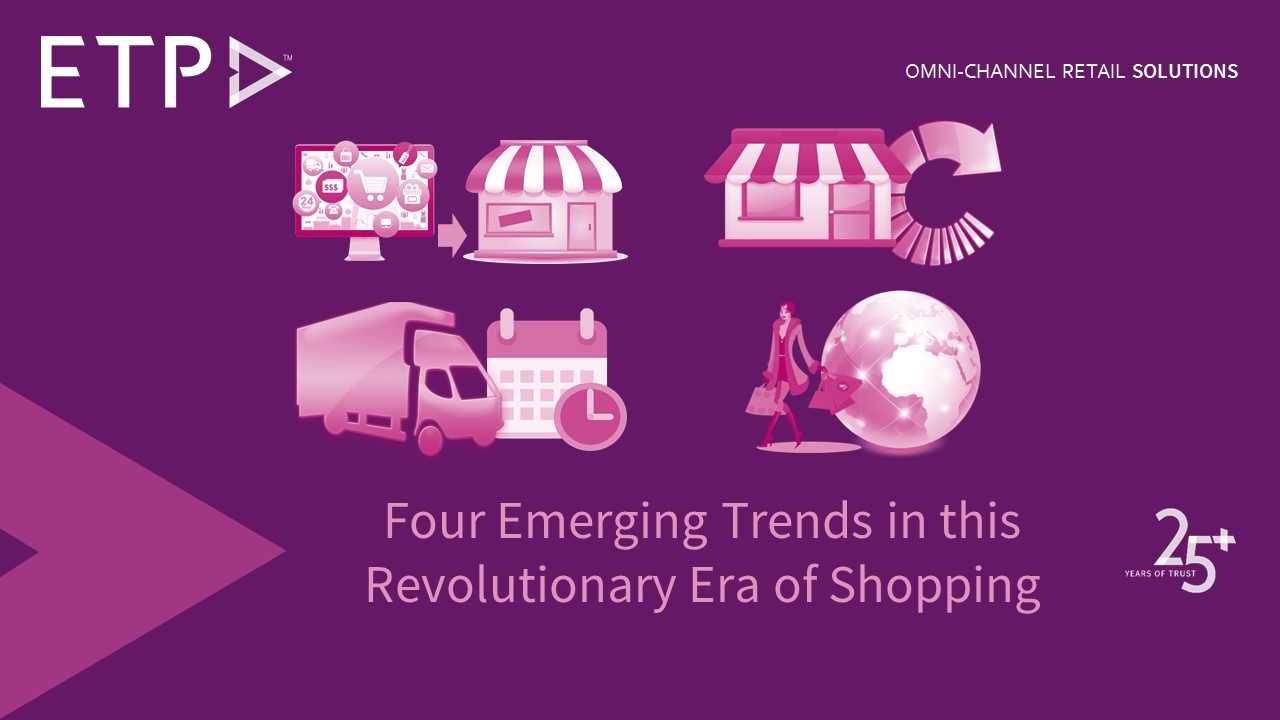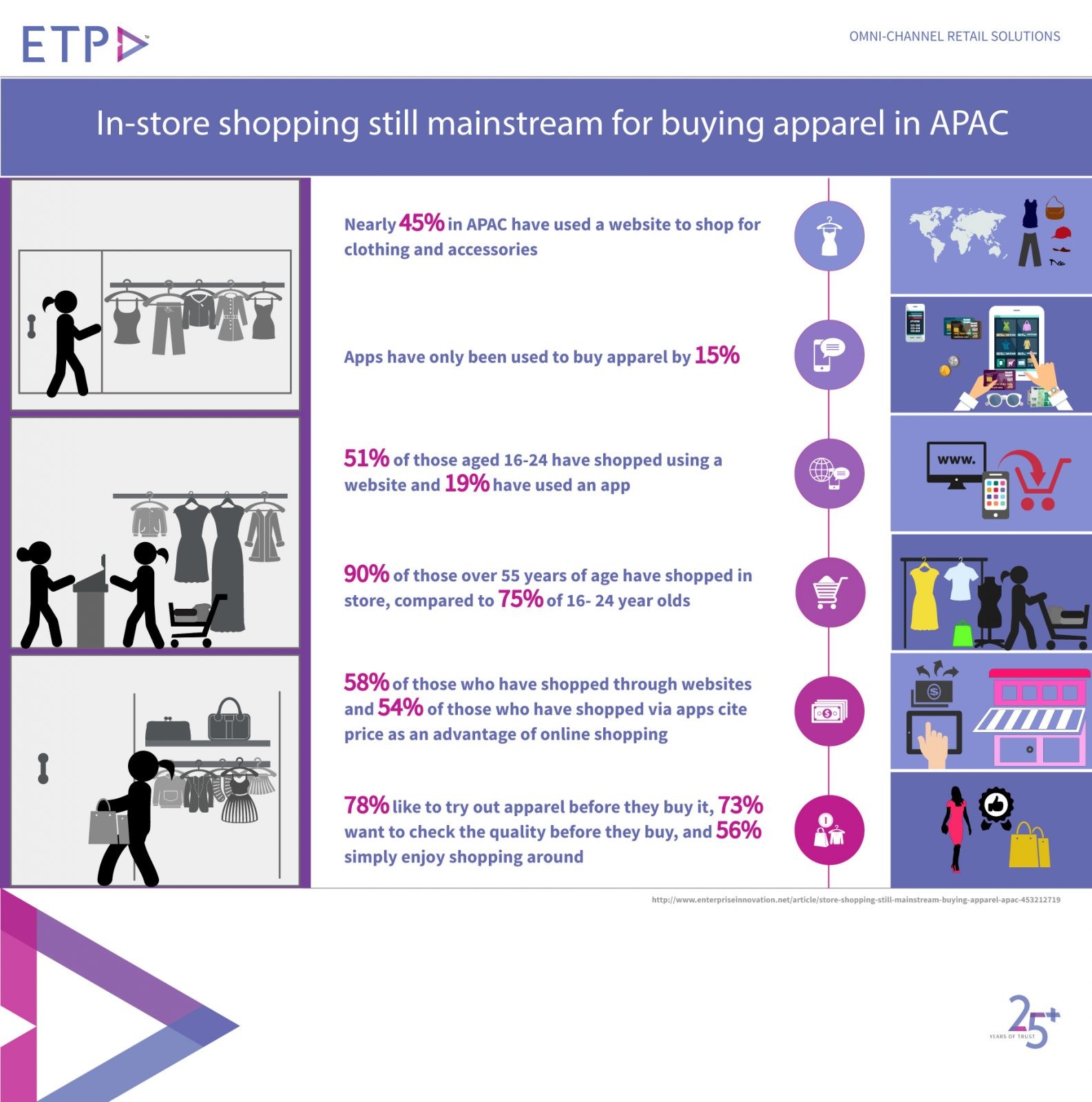Everything about how the modern day consumers research, shop and purchase is changing, and established retail brands and businesses must learn to adapt. A new era of shopping has emerged leading to 4 trends:

From ‘online-to-offline’ is gaining momentum – Big online-only players such as Amazon are increasingly eyeing and realizing the value of traditional stores to grow and generate profits. In the age of omni-channel retailing, it is insufficient for large e-commerce companies to exclusively sell online as brick-and-mortar stores are the go-to destinations where consumers get the chance to touch and feel the products. Hence e-commerce players are setting up their own physical stores to allow consumers to try products prior to buying, or they are partnering with local stores to enable shoppers to collect the products they have purchased online. The convergence of the physical and digital channel into a seamless omni-channel world is accelerating.
Stores stay relevant, important, but they are evolving – An online only retail world doesn’t seem to be a possibility and brick-and-mortar stores are far from getting extinct. Even today, offline stores continue to drive the overwhelming majority of retail sales globally. However, stores are no more merely places to make purchases; they are now evolving into entertainment hubs and social destinations allowing shoppers to explore and connect. This new wave of “experiential retail” is fast gaining momentum.
Delivery options are growing and time frames shrinking – Urban online shoppers today can expect same day deliveries and next day deliveries after placing an order thanks to retailers exploring new options of delivering packages more efficiently and economically. Retailers are trying to further reduce delivery time frames with the help of existing logistics partners or signing on with startups. And while groundbreaking technologies such as self-driving cars and delivery drones could revolutionize delivery, retail companies are using the right technologies enabling products ordered online to be collected at the stores in a matter of hours.
Shopping patterns are changing globally – None of the above trends are restricted to a particular region or a single market. Similarly, innovation is not limited to any one region. For example, China was where expansive urban delivery networks made same-day e-commerce deliveries common in large cities, and it was there that the term ‘online-to-offline’ originated. So also, in other retail markets around the globe, the connection between e-commerce and brick-and-mortar retail stores is swiftly growing in importance.
The bar for retail brands and businesses has been raised higher today than ever before and at the same time, business growth and increase in profitability remain elusive for even the most forward-thinking companies. In order to compete, retailers are getting more creative in their strategies of how they plan to leverage the opportunities of both online and offline channels. While doing so, they are thinking of redefining the in-store customer experience, preparing for rising delivery expectations and merging the online and offline channels so as to function seamlessly. Consumers are connected, technology savvy and well informed. They are demanding a rapid change and retail brands are responding. A new era of shopping has begun!



